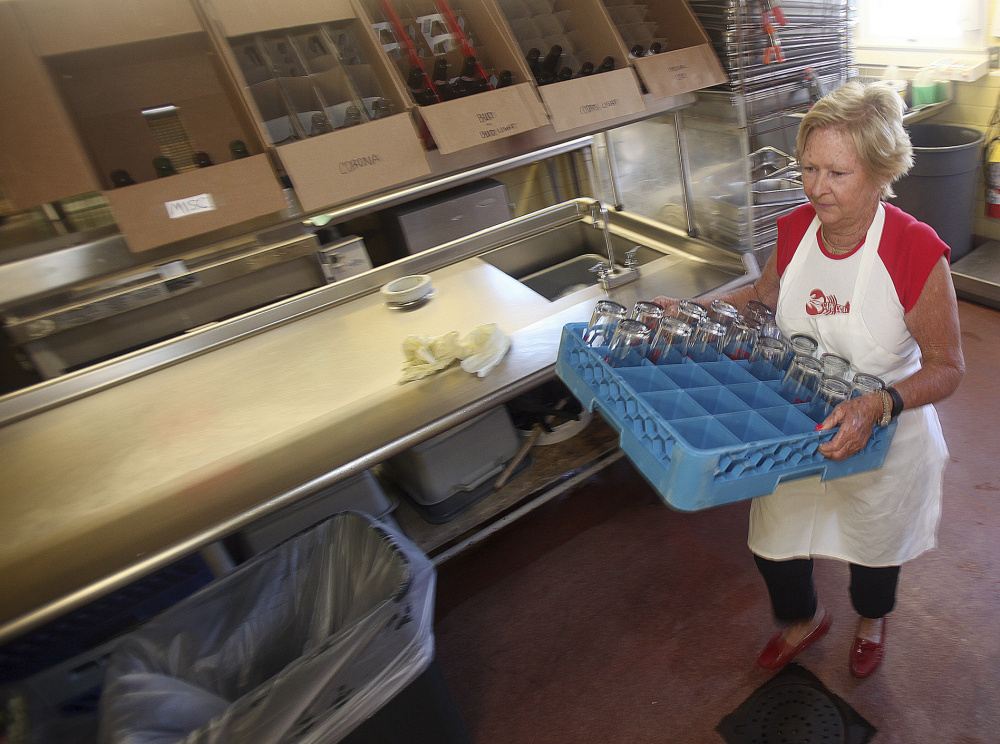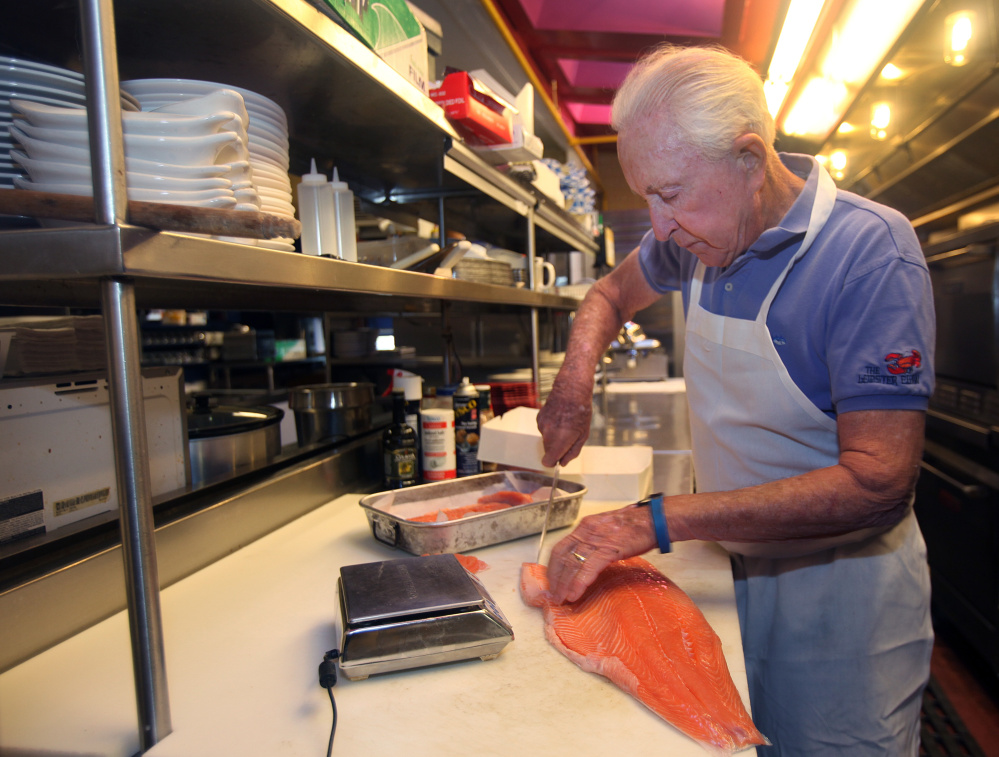ORLEANS, Mass. — Putting in 15-hour days as cook and cleaner is not what Don Berig expected to be doing at this point in his life, but he and his wife, Marylou, are on the front lines at the Lobster Claw until the restaurant’s seasonal workforce arrives.
“I had to bring my wife back from Florida two weeks ago. She never comes before May 1,” Berig said Thursday. “I’m 76 and my wife is 73. We’re sweeping the floors and doing the cooking.”
Berig, like many of the Cape’s seasonal business owners, is dealing with the fallout from a federal government delay in processing H-2B visas. The nonimmigrant visas allow foreign citizens to travel to the United States and fill critical needs for temporary, seasonal workers.
At peak season, the Lobster Claw employs 40 people. Right now, while waiting for his 13 longtime H-2B workers to return from Jamaica, Berig said his staff consists of seven servers, he and his wife in the kitchen and two part-time helpers “doing me a favor.”
“For 47 years, I’ve opened this restaurant on April 1,” Berig said. “I was damned if I was going to give in.”
But in Provincetown, the Lobster Pot Restaurant, well known for its red neon sign, harbor view and fresh seafood menu, is likely to remain shuttered through the end of the month, well beyond its scheduled April 8 opening day, because of the foreign worker delay.
“We are struggling,” chef-owner Tim McNulty said. “We’re going to lose two to three weeks of work and part of that will be over the 10 days of school vacation. That’s thousands of dollars in gross revenue losses for us and tax losses for the state and the town.”
The Lobster Pot has been bringing in about 35 workers from Jamaica annually for decades, McNulty said, These people provide the extra hands needed during the intense summer months and also staff the restaurant during the early spring and late fall, when other workers aren’t available.
“They come a couple of days before we open and leave the first week of December,” he said. “We need them to keep the other 70 people– waiters, bartenders, cooks – here working.”
The ripple effect of the Lobster Pot’s extended closure reaches beyond the McNulty family, which has run the restaurant for the last 44 years.
Local employees collecting unemployment will stay on the rolls longer than they would have. Food and liquor vendors won’t be making deliveries. Trash pickup is on hold. And, McNulty said, the family likely will have to scale back its charitable contributions to organizations in the community because of decreased revenues.
Most of the H-2B visa holders have been working in the restaurant for many years and are well-known to customers, he said. They spend money in the community and buy things locally to send home. And early spring visitors to town looking to make their traditional stop at the restaurant will be disappointed.
“It’s unfortunate that this is so hard,” McNulty said. “This situation hurts everyone.”
Other restaurants delaying opening this spring due to the visa-processing backlog include the Flying Bridge in Falmouth, Tugboats in Hyannis and Mac’s Shack and Mac’s Pier in Wellfleet.
Michael Kasparian, executive director of the Falmouth Chamber of Commerce, has heard from a number of businesses in town, particularly in the restaurant and accommodation industries, concerned about a worker shortage.
“It’s mostly the seasonal businesses,” he said. “Falmouth is becoming quite the food destination and accommodations were at 90 percent occupancy last year. I really hope people can get the help they need.”
The Department of Labor and U.S. Citizenship and Immigration Services are jointly responsible for processing employers’ applications for H-2B visa workers. Employers must demonstrate they have a seasonal need, cannot find American workers for specific jobs and will pay foreign workers prevailing wages so their presence doesn’t undercut the pay of American workers.
In mid-February and late March, the Labor Department blamed its H-2B visa processing backlog on regulatory changes, computer problems, and an unexpected surge in applications from across the country between Dec. 26 and Jan. 15.
Local H-2B facilitators said the surge was because of changes in the regulations that compressed the application period from 120 days to 90 days.
Laurie Flanagan, co-chairwoman of the H-2B Workforce Coalition in Washington, said the processing delays have hurt seasonal businesses across the country. And, while the Labor Department did implement emergency processing procedures at the request of members of Congress, including U.S. Rep. Bill Keating, D-Mass., worker arrivals are being delayed weeks and even months.
Because of its expense and complexity, many employers turn to the H-2B program as a last resort, Flanagan said.
“There is no other way to find legal seasonal workers,” she said. “It’s frustrating for employers who are committed to having a legal, documented workforce. They’re having to put off business.”
Both Berig and McNulty have experienced professionals handling their H-2B applications and doing everything the government has required of them in a timely way.
“I was a CPA and I am methodical,” Berig said. “As my attorney said, there’s just no excuse for what is happening. Someone is not doing their job.”
McNulty said he understood the need to screen workers and employers to be sure everyone is legitimate, but that something has to change.
“We’re fine with following regulations,” he said. “They just have to fix this system.”
Send questions/comments to the editors.



